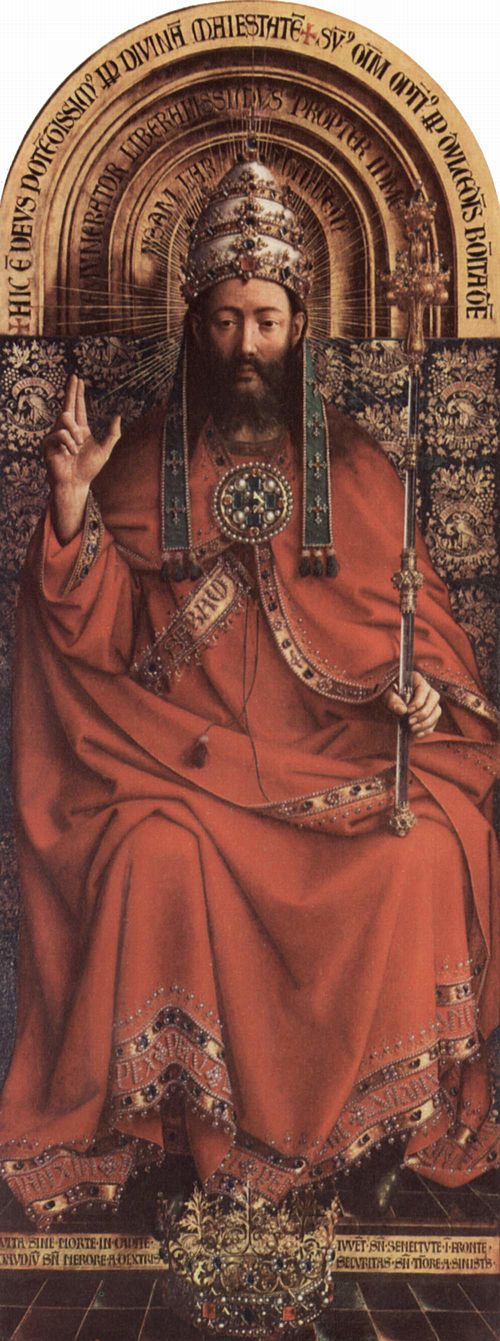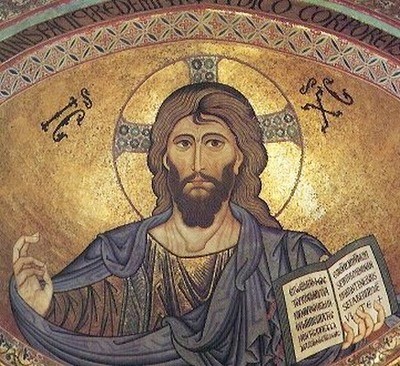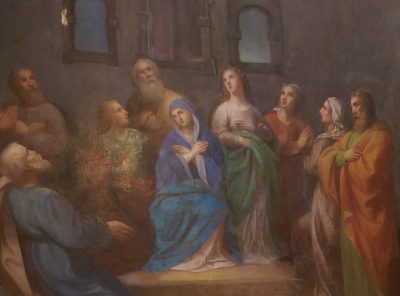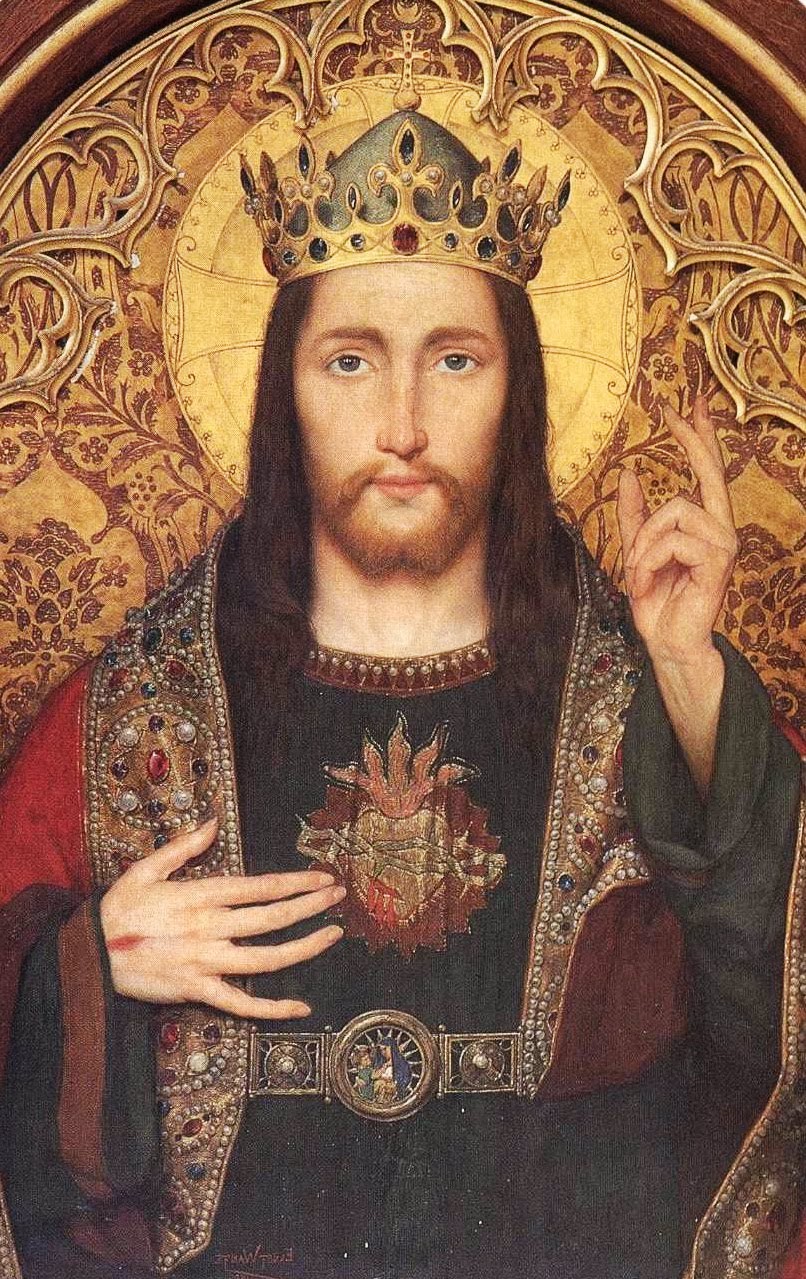The 100th Celebration of the Solemnity of Christ the King
O God, Who in Thy Beloved Son, the King of the universe, hast willed to restore all things anew, graciously grant that all the families of nations, torn apart by the wound of sin, may be subjected to His most sweet rule (Collect of the Mass of Christ the King)
100 Years of the Feast
 It is 100 years since, at the end of the Holy Year 1925, Pope Pius XI, in the encyclical letter Quas Primas, spoke to a world in which indeed all the families of the nations were peccáti vúlnere disgregátæ, torn apart by the wound of sin. Not many years before that, the First World War had come to an end, a war which had shattered the hopes and dreams of modern civilization which thought that it was on an unstoppable march of progress. Suddenly, four years of hellish war brought everyone to a rude awakening: millions of dead, Europe’s peace destroyed. In the aftermath of the war, there was still no peace. There were various ideologies on the rise. Communism had taken over in Russia. National Socialism and Fascism in its various forms was taking shape in different countries of Europe. Western nations were seeking to lose themselves in the pleasures of this world and the atmosphere of the Roaring Twenties.
It is 100 years since, at the end of the Holy Year 1925, Pope Pius XI, in the encyclical letter Quas Primas, spoke to a world in which indeed all the families of the nations were peccáti vúlnere disgregátæ, torn apart by the wound of sin. Not many years before that, the First World War had come to an end, a war which had shattered the hopes and dreams of modern civilization which thought that it was on an unstoppable march of progress. Suddenly, four years of hellish war brought everyone to a rude awakening: millions of dead, Europe’s peace destroyed. In the aftermath of the war, there was still no peace. There were various ideologies on the rise. Communism had taken over in Russia. National Socialism and Fascism in its various forms was taking shape in different countries of Europe. Western nations were seeking to lose themselves in the pleasures of this world and the atmosphere of the Roaring Twenties.
Amidst all of this, Pope Pius XI, at the conclusion of that Holy Year, proposed to the Church and to the whole world the contemplation of the Kingship of our Lord Jesus Christ. In dilécto Fílio tuo, universórum Rege, ómnia instauráre voluísti. “In Thy Beloved Son, King of the Universe, Thou hast willed to restore all things anew.” Our Lord Jesus Christ, Pope Pius pointed out, is the king in several different ways. As the Eternal Son of God, Second Person of the Trinity, the Word by Whom all things were made, He rules over all things by His divine power from all eternity. But as man, because of the hypostatic union — because of the union of His human nature with His Divine Person — even as man, He rightfully has dominion over all created things. And furthermore, He has won for Himself the right to His Kingship by conquest, you could say, that is to say, by overcoming the power of evil through His death and resurrection. And so, in each of these ways, our Lord Jesus Christ deserves to be the King not just of every individual but of every human society.
The Social Kingship of Christ
People tend to think today that religion, the Kingship of Christ, is a purely interior matter just ‘between me and God.’ But the Church reminds us in the Catechism that the duty of offering God genuine worship concerns man both individually and socially.
By constantly evangelizing men, the Church works toward enabling them “to infuse the Christian spirit into the mentality and mores, laws and structures of the communities in which [they] live.” (CCC 2105)
Not long after this feast of Christ the King was instituted, this doctrine was expressed very eloquently in the preamble to the constitution of our Irish nation:
In the name of the Most Holy Trinity, from Whom is all authority and to Whom, as our final end, all actions both of men and States must be referred,
We, the people of Éire,
Humbly acknowledging all our obligations to our Divine Lord, Jesus Christ, Who sustained our fathers through centuries of trial…
And seeking to promote the common good, with due observance of Prudence, Justice and Charity, so that the dignity and freedom of the individual may be assured, true social order attained, the unity of our country restored, and concord established with other nations,
Do hereby adopt, enact, and give to ourselves this Constitution.
Freedom?
We seem very far from this today, not just in our nation but in all the world. The Kingship of Christ is something which no one would talk about in public, or, if they would, they would probably see it as something to be feared, something that is a menace to human freedom.
But the Kingship of our Lord is not about taking away our freedom. It’s not about keeping us down. God does not seek to be king in order to get something from us. Rather, as St. Augustine reminded us in the homily we heard at Matins this morning, for our Lord to be acknowledged as King of the Jews was an act of His loving condescension, not an act of domination. It is the same with His claim to be the King over all nations. He does so not for His good — He needs nothing from His creatures — He is our king for our good.
The Catechism teaches us that every institution is inspired at least implicitly by a vision of man and his destiny.
Most societies have formed their institutions in the recognition of a certain preeminence of man over things. Only the divinely revealed religion has clearly recognized man’s origin and destiny in God, the Creator and Redeemer. The Church invites political authorities to measure their judgments and decisions against this inspired truth about God and man:
“Societies not recognizing this vision or rejecting it in the name of their independence from God are brought to seek their criteria and goal in themselves or to borrow them from some ideology. Since they do not admit that one can defend an objective criterion of good and evil, they arrogate to themselves an explicit or implicit totalitarian power over man and his destiny, as history shows.” (CCC 2244 quoting from Pope Saint John Paul II, Centesimus annus, 45;46)
If we do not want Christ as King, then we will choose some other king. We will choose Caesar in one of his various forms and surrender ourselves to some other domination.
His Most Sweet Empire
Ejus suavissimo subdantur imperio. “May they be subjected to His most sweet empire.” Our Lord is king. He deserves our adoration. He deserves our homage. He is the King of Love and His empire is most sweet.
What an unusual king after all.
Dignus est Agnus, qui occísus est.
Worthy is the Lamb Who was slain.
This is how this Mass begins. This is our King. This is our Conqueror: the Lamb Who was slain.
A lamb. Not a very fearful image. A meek, helpless animal. An animal, in this case, Who has been slain and has laid down His life, Who has made peace through the Blood of His Cross so that He can bring us into His kingdom which is a kingdom of truth and life, a kingdom of holiness and grace, a kingdom of justice, love, and peace. Our Lord brings about His kingdom not through the means that earthly kings use. He brings it about through His sacrifice. And He establishes it in the hearts of His subjects through His Love.
Under the Banner of Christ, Our True King
 And so, for us who are His loving subjects, for us who want to be His soldiers, we must use the means that He used. Certainly, we must do what we can to make Christ’s Kingship known in society. But His Kingship begins within. It begins in the heart.
And so, for us who are His loving subjects, for us who want to be His soldiers, we must use the means that He used. Certainly, we must do what we can to make Christ’s Kingship known in society. But His Kingship begins within. It begins in the heart.
We as sons of St. Benedict hear frequently his call in the Prologue of the Holy Rule to fight for the Lord Christ, the true King. We fight for Him not with the arms of this world, not with weapons, not even with speeches or with publicity; we fight for Him with the arms of obedience, silence, and humility. It was with these arms that our father Saint Benedict went into the wilderness. It was with these arms that he and his sons built slowly but surely the foundations of a new society, the recognition of Christ’s Kingship: His Kingship which is not of this world, but which at different times has been at least recognized and glimpsed here in this world in the spread of the Gospel as the Church went out those years after our father Saint Benedict to convert the nations.
The Consecration of the Human Race to Christ the King
Today we will recite at Vespers the Consecration of the Human Race to the Sacred Heart of Jesus, and we recall that our own country, Ireland, was consecrated anew by the Primate to the Sacred Heart earlier this year. We ask our Lord that His Kingship might be recognized, certainly in our nation, but throughout the whole world, that it may begin to be recognized first of all in the hearts of each of us.
Even in the times when the Church was given no recognition by society, when she was underground in the catacombs of the Roman Empire, our Lord was still King. He was King in the hearts of His faithful people, the hearts of His martyrs and His confessors.
 Through Our Lady
Through Our Lady
And so too, no matter what is going on in the world around us, He is the King in each of our hearts. We ask our Lady, the Queen of all hearts, the Queen of peace, to help us today to welcome our Lord as King into our hearts so that He may reign there: that His Sacred Heart might come and take possession of us as we receive Him in holy communion, that He might reign in each of us and so that through us He might extend His kingdom to every heart and to all the world.

